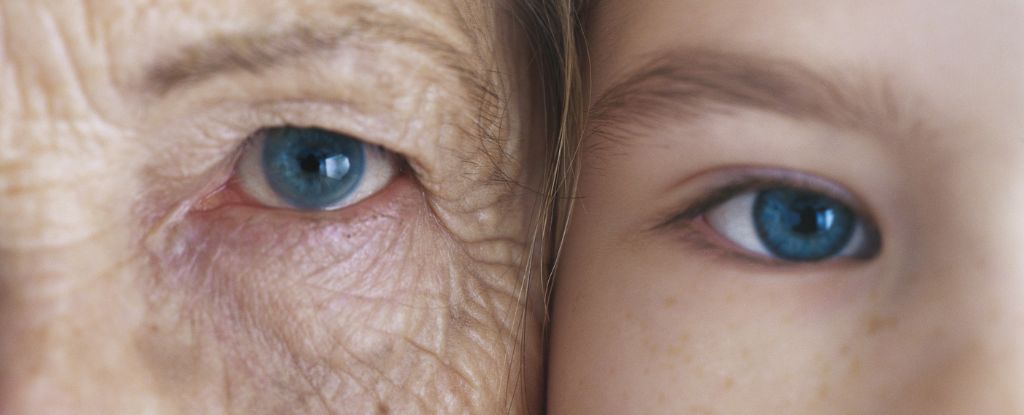
New research suggests that the onset and cessation of menstruation may influence the likelihood of developing dementia in the future. This finding comes from the most extensive study conducted on the subject to date.
Examining health data from 273,260 women in the United Kingdom Biobank, the study indicates that commencing menstruation earlier and experiencing menopause at a later age may contribute to healthier cognitive aging.
In particular, scientists from University College London discovered that individuals who experienced menstruation for a duration of 34 to 37 years exhibited a 28 percent lower likelihood of developing dementia in comparison to those with a shorter ‘reproductive span’.
This association appeared to rely on both the onset and cessation of menstruation, whether occurring naturally or due to reproductive surgery.
In the human body, estradiol stands out as the most powerful among the estrogen hormones. Its levels fluctuate over the course of a lifetime, reaching their peak during reproductive years and decreasing as menopause approaches.
In this study, menstruation serves as an indicator of hormone levels. Individuals who began menstruating at 15 years old or later displayed a 12 percent higher likelihood of dementia. Conversely, those who underwent menopause after reaching the age of 50 exhibited a 24 percent reduced risk of dementia.
The findings suggest that hormone replacement therapy, which supplements estrogen following menopause, did not affect the outcomes. Furthermore, the connections remained consistent across individuals with genetic predispositions for dementia and those without.
Based on the results of this study, estrogen might have a protective role in women in the development of dementia,
the team at UCL concludes.
If confirmed, this could potentially explain why over 60 percent of individuals affected by this cognitive condition are female. Indeed, aside from age, gender stands as the most significant predictor of dementia development recognized by scientists.
However, there remains a lack of understanding regarding the impact of sex hormones on the aging female brain. Historically, the bulk of brain research has focused on male subjects.
Merely 2 percent of neuroimaging studies published acknowledge hormonal factors, with only 0.5 percent delving deeper. Over half of these investigations have identified statistically significant connections between female sex hormones and brain changes.
For example, in the postmortem brains of women who passed away with Alzheimer’s disease – the most prevalent type of dementia – researchers have observed relatively low levels of estrogen.
Follow-up studies on animals have shown that the mammalian brain is highly responsive to estrogens, particularly in areas linked to learning and memory. Certain findings from rodent research even suggest that estradiol may enhance neural connections in the hippocampus and potentially reduce the buildup of protein plaques associated with Alzheimer’s.
However, studies conducted with human brains have yielded contradictory findings.
In 2021, research involving 99 middle-aged women found that a longer reproductive span, indicating increased exposure to estradiol, correlated with larger volumes of gray matter in the brain – a tissue that experiences reductions in volume among individuals with Alzheimer’s.
In 2020, however, a comprehensive study involving 16,854 women discovered that increased exposure to sex hormones throughout life was linked to greater indications of brain aging, rather than fewer.
To tease apart these mixed results, researchers at UCL conducted what they say is, to the best of their knowledge, the largest analysis to date. Their findings suggest that cumulative estrogen exposure in life is tightly linked to healthy brain aging.
Rewrite the above lines for the blog, change the wording, use SEO-friendly wording, use simple but best English, do not change the meaning, do not summarize any line, and it is important that do not remove any HTML inline tags, especially anchor tags.
One of the study’s more alarming discoveries is that individuals who underwent reproductive surgery encountered an 8 percent higher risk of dementia.
Fortunately, it appears that this risk can be greatly reduced if the surgery is performed later in life (typically in a patient’s 40s or 50s rather than their 20s or 30s).
However, researchers at UCL highlight that many of these procedures are unnecessary and conducted at a young age. According to certain estimations, approximately 90 percent of hysterectomy surgeries are performed for non-cancerous conditions, with 54 percent of women in the United States opting to have both ovaries removed during hysterectomy. Surprisingly, over a third of these cases involve individuals under the age of 44.
When women undergo surgery due to such benign conditions, they go through an abrupt decrease in estrogen exposure and accelerated changes in the nervous system in the perimenopausal period,
explain researchers at UCL.
[R]eproductive surgery should be considered as an increased risk for dementia in clinical practice.
The latest examination has generated some of the strongest observational findings thus far, yet it is limited to uncovering associations at a population level.
Significantly more research is necessary to understand how estrogen directly affects brain aging and what actions can be taken in response. There’s even a possibility that other sex hormones, such as progesterone, may also be playing a protective role that has been overlooked.
Although the recent study did not demonstrate improved cognitive health outcomes in individuals who underwent hormone replacement therapy, some researchers have previously suggested that the timing of these treatments is crucial for brain health, rather than simply their occurrence.
Considerably more research is necessary to understand why females exhibit significantly higher rates of dementia compared to males and to identify ways to mitigate this risk.
To gain a comprehensive understanding of cognitive decline, experts emphasize the importance of prioritizing studies on the female brain in future research endeavors.
The research findings were featured in The American Journal of Geriatric Psychiatry.





